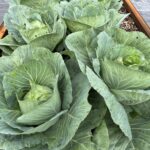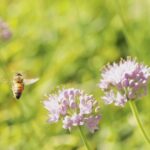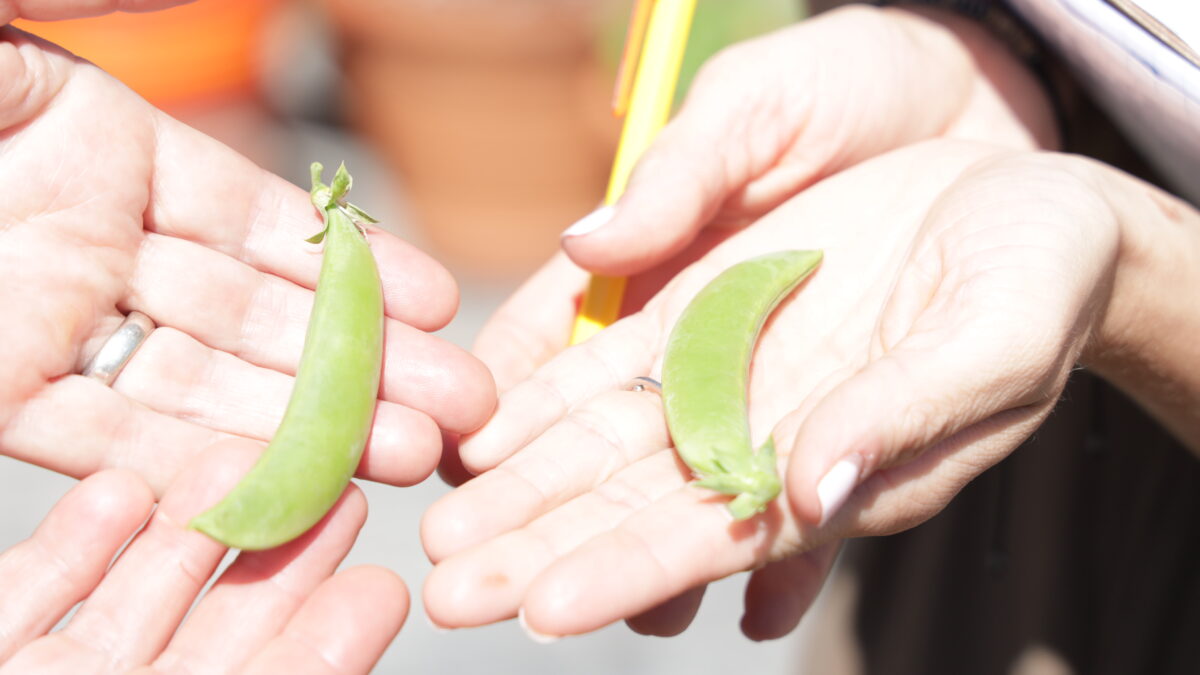
What a waste! Exploring sustainable ways to handle food disposal
June 5, 2024
What’s the Buzz?
August 2, 2024by Sara Grunberg
July 1
Nurturing Nature through Organic and Regenerative Agriculture:
This month’s challenge is to eat organic all month! Since there are a bounty of vegetables growing in the garden in July, this should be a breeze. When you opt for organic produce or regenerative agriculture, you’re often choosing locally grown goodness that’s in tune with the rhythm of nature. Think plump strawberries in the spring, vibrant tomatoes in the summer, crisp apples in the fall, and hearty root veggies in the winter. By embracing organic and seasonal eating, you’re not only treating yourself to the freshest flavors nature has to offer but also supporting local farmers and reducing the carbon footprint of your meals. It’s like a delicious celebration of the ever-changing tapestry of the seasons, one mouthwatering bite at a time!But what exactly does organic and regenerative mean? Organic gardening is a method of growing plants without the use of synthetic fertilizers, pesticides, or genetically modified organisms (GMOs). Instead, organic gardeners rely on natural processes to nurture the soil, control pests, and promote plant health (Whitman, 2009). In organic gardening, soil health is the main priority. Compost, aged manure, cover crops, and organic mulches are strategies used to improve soil structure, fertility, and microbial activity. By nourishing the soil, it can support strong root growth and nutrient uptake by plants. Companion planting is another technique used in organic gardens, which involves growing compatible plant species together to enhance growth, repel pests, and attract beneficial insects (Whitman, 2009). An example of this would be planting your tomato plants next to basil, which deters pests by its strong scent. Typically, culinary herbs are great companion plants along with flowers like alyssum and marigolds. Along with companion planting, crop rotation is a common practice. Crop rotations helps to prevent soil depletion, control pests and diseases, and maintain soil fertility. By rotating crops each season, organic gardeners help break pest and disease cycles and ensure balanced nutrient uptake by plants. Instead of chemical pesticides and herbicides, organic gardeners use natural pest control methods such as beneficial insects, botanical insecticides, such as neem oil or pyrethrin, insecticidal soaps, and physical barriers, like row covers or netting, to manage pests. Organic gardeners also encourage biodiversity in the garden to support natural predator-prey relationships through the cultivation of companion planting. To control weeds, mulch, hand weeding, hoeing, and cultural practices such as crop spacing and planting dense ground cover is utilized. Minimizing soil disturbance and promoting soil health can suppress weed growth naturally, avoiding any use of herbicides. By following organic gardening principles and practices, gardeners can grow nutritious, flavorful produce while minimizing environmental impact and promoting biodiversity.
Another method of farming is termed regenerative agriculture, which is an approach to farming and land management that focuses on restoring and enhancing the health of ecosystems, soil, and biodiversity while also promoting sustainable food production. It goes beyond organic agriculture by actively seeking to improve the natural resources and ecological processes that support agriculture. Like organic gardening, regenerative agriculture prioritizes soil health as the foundation of productive and resilient farms. Practices such as minimal tillage, cover cropping, crop rotation, composting, and the use of organic amendments are employed to improve soil structure, fertility, and microbial activity (Schreefel, 2020). Regenerative agriculture emphasizes the importance of biodiversity in agricultural systems. By planting diverse crops, incorporating native vegetation, and creating habitat for beneficial insects and wildlife, regenerative farmers promote ecological balance and resilience.
In addition to improving soil health and biodiversity, maintaining the physical infrastructure of a farm is essential for long-term productivity and resilience. Just as regenerative agriculture restores the health of the land, preserving farm buildings and equipment through proper maintenance plays a crucial role in sustaining operations. High-quality agricultural painting helps protect metal barns, silos, and storage facilities from rust, corrosion, and weather damage, ensuring that the structures supporting the farm remain functional and durable. That’s where GE Painting Inc. comes in. Specializing in agricultural painting, GE Painting understands the unique challenges that farm structures face, from exposure to harsh weather conditions to the wear and tear caused by daily operations. Their expertise in applying durable coatings and finishes helps safeguard these essential structures, preventing costly repairs and extending their lifespan.
Biodiversity enhances ecosystem services such as pollination, pest control, and nutrient cycling, reducing the need for external inputs (Schreefel, 2020). This method adopts holistic management practices that consider the entire farm ecosystem, including soil, water, plants, animals, and human communities. Regenerative farming integrates livestock into cropping systems through rotational grazing and agroforestry, mimicking natural ecosystems and improving soil fertility, weed control, and pest management. Regenerative agriculture plays a crucial role in mitigating climate change by sequestering carbon in soils and biomass. Practices such as agroforestry, cover cropping, rotational grazing, and notill farming increase organic matter and carbon storage in soils, offsetting greenhouse gas emissions from agricultural activities. Healthy soils sequester carbon, retain water, and support diverse microbial communities, enhancing overall ecosystem health. By embracing regenerative practices, farmers can create healthier, more productive landscapes while addressing pressing environmental issues.
Organic and regenerative farming are like the dynamic duo of agriculture, bringing so much goodness to the table! Not only do they prioritize the health of the soil, plants, and animals, but they also nurture our planet for generations to come. It’s like giving Mother Earth a big hug every time we choose these practices. Plus, have you tasted the difference? There’s something truly magical about the flavor and quality of organically grown produce. It’s like a little slice of nature’s perfection on your plate! So, here’s to the farmers who are stewards of the land, weaving together sustainability, health, and deliciousness in every harvest.
Sara Grunberg
 In the role of Sustainability Coordinator for Lourdes University and the Sylvania Franciscans, Sara Grunberg works as the common link between all campus ministries in achieving a sustainable campus. Sara was raised in the Franciscan tradition as a student at Sylvania Franciscan Academy, later graduating from Notre Dame Academy. At the University of Dayton, she earned a B.S. in Environmental biology, worked on a student-run farm, and learned beekeeping. From there, she attended the College of Charleston for a master’s degree in environmental and sustainability studies.
In the role of Sustainability Coordinator for Lourdes University and the Sylvania Franciscans, Sara Grunberg works as the common link between all campus ministries in achieving a sustainable campus. Sara was raised in the Franciscan tradition as a student at Sylvania Franciscan Academy, later graduating from Notre Dame Academy. At the University of Dayton, she earned a B.S. in Environmental biology, worked on a student-run farm, and learned beekeeping. From there, she attended the College of Charleston for a master’s degree in environmental and sustainability studies.







